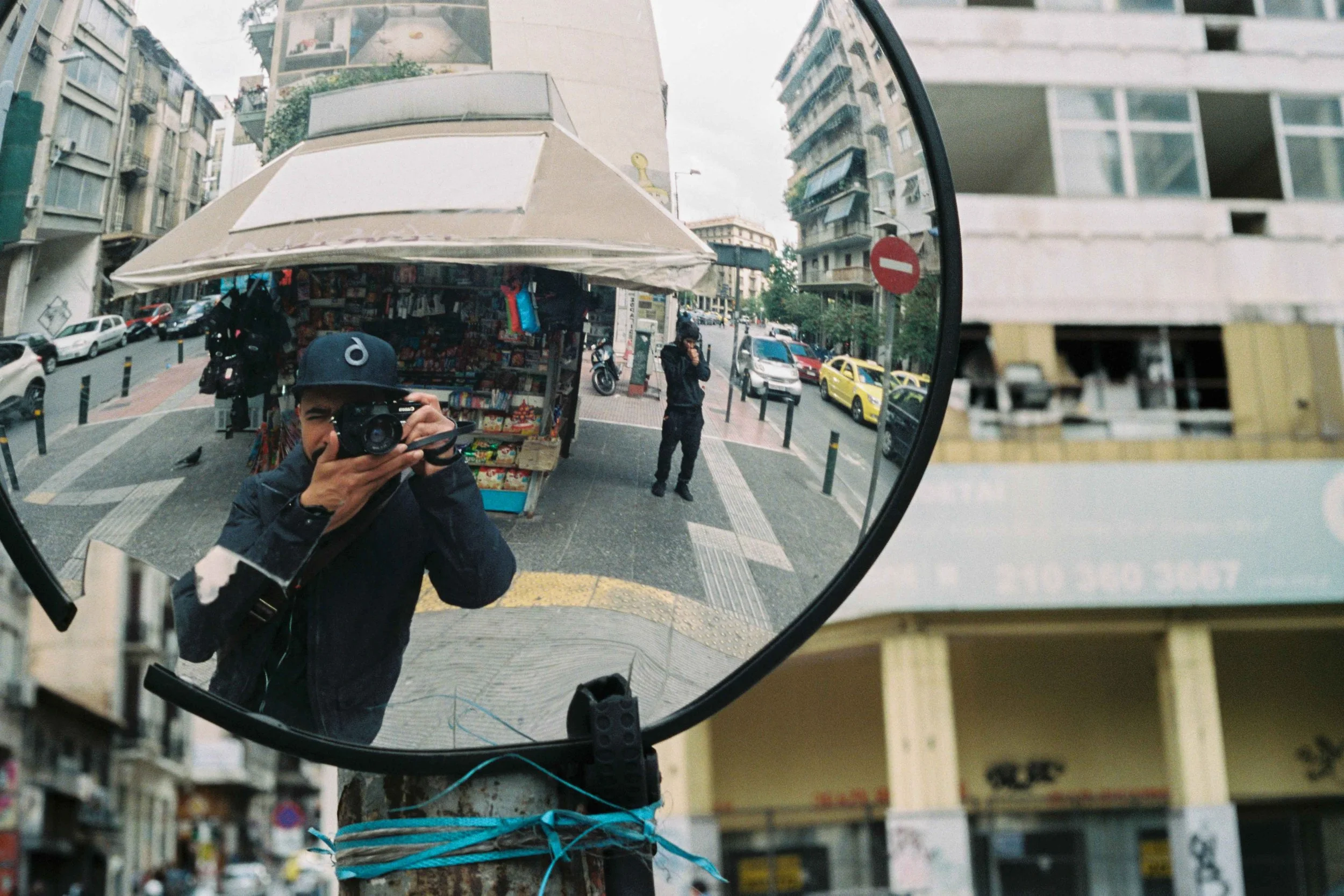SPOTLIGHT.
Neal Gruer
INTRODUCTION
Born in 1985, in Edinburgh, to an Aberdonian father and Ghanaian mother, Neal Gruer was then raised in Glasgow. He went onto became a lawyer in London before embarking on a career as photographer and writer. He subsequently appeared on the first season of Sky Arts TV talent competition, Master of Photography, where he reached the quarter-final. His pictures (and some of his writings) have since been published by Vice, Red Bull, SOGO, Delicate Rébellion, She is Fierce, Kajet Journal, Afropunk and Harper’s Bazaar. He has exhibited in Venice, Bucharest and London; most recently in July 2021 at Trafalgar Avenue’s Pleasure Scene show. He also featured in Stewart Kyasimire’s BBC documentary, Black & Scottish, and on BBC Radio 5’s Black History Month programming in 2020.
In 2018, he published his first book, Same Difference / Aceeași Diferență, studying two groups of politically polarised people in Bucharest, Romania, where he now spends much of his time. 2020 saw the release of his second Bucharest-based book, Does the peacock know about the bouquet in its backside?, and he is currently planning towards the pandemic-delayed publication of three further photography collections, Passing Constellations, Curated Decay and Downward Flowers; the latter of which is accompanied by a short film, Encumbered Drum.
INTERVIEW
How did you get into photography? What initially inspired you?
My parents were always enthusiastic photographers – my Mum from the perspective of recording experiences (and often plates of food, waaaay before Instagram), and my Dad with a more artistic motivation. It was a big part of family life, which meant I received my first (film) camera on my 8th birthday. After that, I was a frequent but casual photographer until I took a round-the-world trip at 25 and began taking it more seriously as a practice. Since then, it’s been something of a love affair: first tackling technicality through digital photography before ultimately coming full circle and exploring artistry through film.
You practiced law for some time, what encouraged you to leave that behind to pursue photography and the arts?
As is often the case with a big shift, leaving law for the arts resulted from several unforeseeable scoops of persuasive circumstance, topped off with a big, creamy dollop of why the hell not? It mostly “happened” rather than being planned. But aside from the obvious rationale of seeking a more creative existence, the biggest encouragement to keep going with all this was probably my sense that through photography and writing, I could sustainably learn new, fascinating things, hopefully until the end of my life. For me, it seemed law would struggle to offer that.
How have your travels influenced your art?
Travel has been essential. Besides giving me the space and time to explore photography initially, places and cultures compel me to create. They teach me about the world outside my own, how I fit into that world, and how to traverse the differences between people in order to locate the similarities and work out what those similarities mean. Those are the ideas I then try to convey through photographs or text. The pandemic has also shown me how valuable the actual act of travel is, and how much I miss it. I do my best thinking when I’m heading from A to B, moving between places, not exactly anywhere. It’s an important part of the process.
What advice would you have for creatives of colour looking to get into photography?
Be honest. Be brave. Think, more than you shoot
What are you currently working on?
Consolidation is probably the best way to describe it! The pandemic brought obstructions but also opportunities. It allowed me time to study, think and develop ideas in different, deeper ways than I would otherwise have done. Instead of ploughing the same furrow, I’ve been able to pop my head out of the soil and scurry around the field. It’s nice out there. In both photography and writing, slower, more personal projects have taken precedence. It’s enjoyable to redirect what I have learnt onto things closer to hand. My hope is that when the world de-contracts a little more, I’ll be in a better position to contribute to it.

